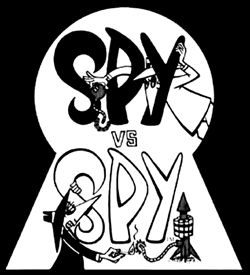 The state of emergency may have turned statecraft into an overt art of subterfuge, but it has brought our private eyes under full public scrutiny. Count the column inches newspapers and magazines have devoted to Nepal's espionage capabilities in recent months, and you get a clear sense that snooping around is on its way to becoming a promising career option.
The state of emergency may have turned statecraft into an overt art of subterfuge, but it has brought our private eyes under full public scrutiny. Count the column inches newspapers and magazines have devoted to Nepal's espionage capabilities in recent months, and you get a clear sense that snooping around is on its way to becoming a promising career option.
Not that nosiness was ever really sneered at in a society with an insatiable appetite for who-did-what-to-whom political prattle. For decades, New Road's peepal bot was the pre-eminent source of coarse information. True, some of the things that came your way were wild rumour, informed speculation and outright innuendo. But you were bound to get all the news that wasn't fit to print in the two government dailies published right next door. Professional sleuths comprised a sizeable section of the evening assemblage, many ready to test their latest disinformation strategy. Agent provocateurs used a careful mixture of whispering and bravado to start conversations on sensitive subjects. The transparency of 12 years of democracy hasn't diminished the grapevine's popularity. The juicy spoken word still commands greater consideration than the most creatively drafted Home Ministry clarification.
This directly leads us into the core flaw in Nepali espionage: information overload. Local politicians and officials had cautioned the government well in advance that something was afoot in and around Mangalsen and Satbariya earlier this year. The security forces went on to suffer heavy blows from the Maoists because the state saw little reason to investigate the sudden increase in suspicious human movements.
The National Investigation Department (NID) and other spy agencies have come under fire for their soporific tendencies. Much of the criticism is unfair. For one thing, the department has become the principal dumping ground for supporters of the home minister of the day. With that kind of personnel policy, even the most chronic insomniacs would have little motivation to keep their eyes wide open. Perpetual funding and logistical problems force intelligence gatherers to adopt the creativity of fiction writers. When allegations of being an informant are enough to invite the death penalty in the Maoist rulebook, you can't expect real moles to infiltrate hostile territory. (Even if the more enterprising special agents had precious nuggets to offer, would the Home Minister be ready to listen to the same set of supporters he did so much to silence?)
Sections of the intelligence community yearn for the predictability of the Panchayat decades. Spymasters then scouted college campuses to recruit the best and the brightest. With most ideologically attuned students either in jail, exile or underground, it was easy to indoctrinate the rest in the virtues of partylessness. Countless second-generation panchas honed their skills in the only legal student organisation, the Rastrabadi Swatantra Vidyarthi Mandal (RSVM), adapting some of the Gestapo's virulent methods to the nation's needs. Some former 'mandales' are leading luminaries in today's multiparty politics, which is not something to be terribly worked up about. The former Cold War rivals are today led by a former KGB agent and a son of a former CIA director.
It's important, though, not to over-rate the panchayati intelligence apparatus. It went into decline after restive students forced the government to ban the RSVM in 1979. (Which establishes, albeit tentatively, the student-sleuth linkage.) A decade later, middle-ranking leaders of the people's movement could not only evade arrest but also contact the supreme commander under house arrest for instructions.
The panchas thought all those top comrades in jail were senior functionaries in the Marxist-Leninist hierarchy and tried to instigate them against the Kangresis. Days after the fall of the partyless edifice, Madan Bhandari surfaced in a four-column New Delhi-datelined interview in The Times of India. He was followed by a bevy of little-known names that would go on to adorn his central committee roster.
To be sure, the challenges have grown enormously since the days when rookie special agents spent hours pretending they were playing cards in front of the homes of leading pro-multiparty leaders. Gone are the days when sniffing out Kangresi bombs from bales of vegetables was considered the most hazardous beat.
An NID team travelled to the United States last month to learn better ways of anticipating terrorist attacks. An ambitious endeavour, you might say, considering how American agents failed to figure out why flight-school trainees from a particular part of the planet were so listless about take-off and landing procedures. But there's the first lesson: never forget to connect the dots even when it seems they're not there. There's a reason why intelligence, in the lexicon of espionage, is both a quality and a commodity.


